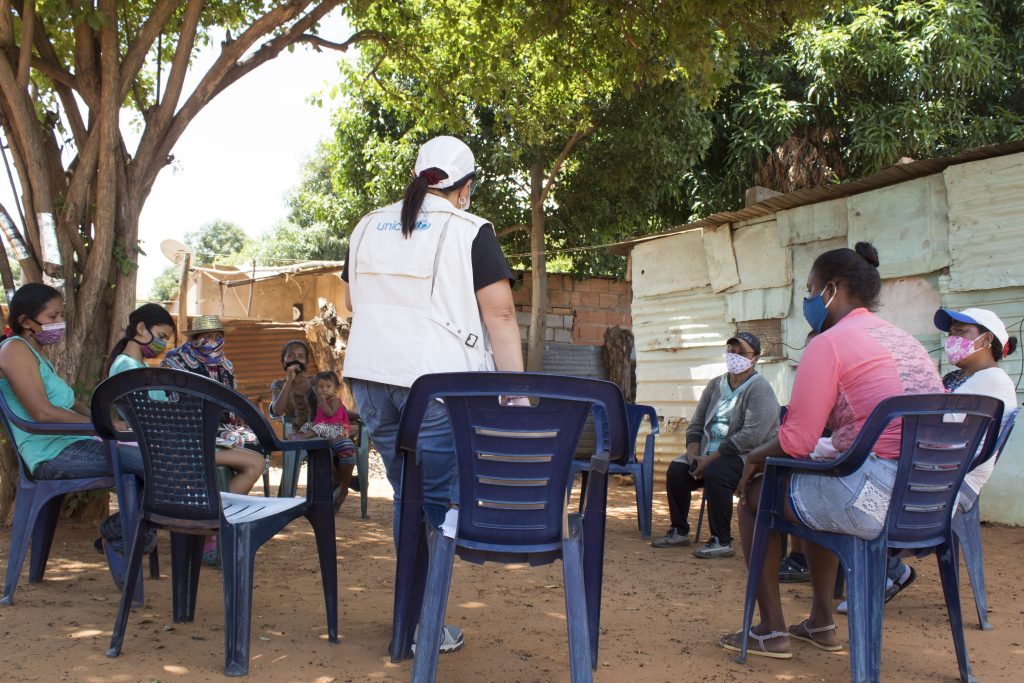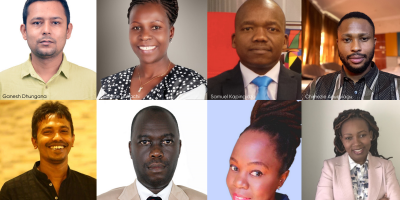The Social Science in Humanitarian Action Platform (SSHAP) has played a key role in the global response to epidemics over recent years. A partnership between the Institute of Development Studies, Anthrologica and The London School of Hygiene & Tropical Medicine, SSHAP provides vital insights in response to disease outbreaks and public health emergencies (including COVID-19, Ebola, Cholera and influenza), and humanitarian crises (including Rohingya refugees and displacement in Venezuela). Integrating social science perspectives into emergency preparedness and response has now become proven and accepted practice, in large part due to the work of SSHAP.
About SSHAP
SSHAP operationalises social science knowledge to ensure emergency preparedness and response are effective, adaptive, contextually informed, planned in consultation with affected and at-risk communities, and based on interdisciplinary science and evidence.
Formed in 2016 following the West Africa Ebola outbreak, and with initial seed funding from UNICEF, SSHAP proved the concept that networks of social scientists could be established as part of preparedness and pre-positioned to provide vital insights, analyses and advice on the social, political and economic contexts of emergency response in real time at both local and international levels.
Over the last four years, SSHAP has built a network of international social scientists that previously may not have contributed or engaged in shaping the response to emergencies. SSHAP has developed multidisciplinary expert advisory groups that have specific in-depth knowledge of geographic areas, at-risk communities and key issues that are significant to preparedness and response. This expertise is made readily available to UN agencies, government actors, INGOs and NGOs, civil society organisations, and academics (among many other groups) both on the ground and globally through briefings, roundtables and meetings.
From January 2020, the Wellcome Trust and the UK Foreign, Commonwealth and Development Office (FCDO) provided SSHAP with further funding, both to support the core platform and to enable expansion to respond to increasing demand.
Supporting the response to outbreaks of Ebola in DRC
In 2018, when new Ebola outbreaks were declared in Equateur Province and then North Kivu in the Democratic Republic of the Congo (DRC), the SSHAP team responded at both global and local levels. At the global level, they worked closely with international agencies, such as UNICEF, the IFRC and WHO to provide contextual, social and behavioural insights relevant to the public health response.
Anthrologica was able to provide support drawing on established relationships with global humanitarian and public health actors and national ministries leading and shaping the response. They ensured that SSHAP could be responsive to the needs of partners internationally, regionally and on the ground. They rapidly convened groups of expert advisors with long-standing experience and knowledge of the affected areas and at-risk neighbouring countries, and to support colleagues in the field in ways that would not have been possible prior to SSHAP’s new funding.
The team coordinated multiple activities to ensure that information and support was getting to key stakeholders in a timely way. These included written briefings and syntheses, which were shared with emergency response agencies and made freely available online via websites such as ReliefWeb, the global network ALNAP, and the Communication for Disease Affected Communities (CDAC) Network.
“I don’t know of a high-level policy forum, from United Nations through WHO, though national governments, through technical agencies… any policy debate which has not accessed these documents”. – Sir Jeremy Farrar, The Wellcome Trust
The team also shared knowledge in verbal briefings, including with the FCDO, the USAID Office of Foreign Disaster Assistance, WHO, UNICEF and others, and produced a brief with the Inter Agency Standing Committee (IASC) for Mental Health and Psychosocial Support.
SSHAP’s Ebola work has been quoted in media including the Devex, New Humanitarian, The Washington Post, The Guardian, Foreign Policy, Medipart and De Groene Amsterdammer.
Providing rapid analysis on the social dimensions of Covid-19
SSHAP has been at the forefront of efforts to support the global response to Covid-19 as the pandemic has unfolded. Building on the agile real-time platform model, SSHAP is able to balance the need to respond quickly to the emerging situation, and to the need for locally led and context driven knowledge in the response.
At the time of writing, the team has produced 20 briefings (also supported with graphic summaries) since the outbreak was declared a Public Health Emergency of International Concern in January 2020. Key briefings have focused on crosscutting aspects of the response e.g. quarantine, misinformation, shielding, vaccines, death and mourning, and home care. Others have focused on challenges in particular settings for example in regions affected by conflict or forced displacement or in ‘slums’ and informal urban settlements.
SSHAP placed an early spotlight on the difficulties of responding to Covid-19 in informal urban settlements, joining UN-Habitat’s expert advisory group and feeding directly into the UN IASC interim guidelines on low capacity and humanitarian settings. They also produced briefs for UNICEF’s regional offices in East and Southern Africa and the Middle East and North Africa on challenges linked to public health and social measures in the region, such as physical distancing.
SSHAP briefs have also been incorporated into FCDO’s Research and Evidence Division updates, and involvement of SSHAP members in the WHO Covid-19 social science expert informed inputs into the WHO guidance on homecare. A SSHAP briefing highlighting the critical importance of online Covid-19 information and dis- and misinformation, which was published early in the pandemic was highlighted in WHO Social Science Working Group discussions as a priority area of focus.
SSHAP continues to engage with a range of international partners on matters related to Covid-19, responding to direct requests from bilateral agencies, and contributing to developing global strategies including the WHO Research Roadmap Social Science Expert Group for Covd-19. From the early weeks of the Covid-19 outbreak SSHAP has continued to advocate for greater inputs from the socio-behavioural sciences into response strategies.
Looking to the future
Alongside its support of active responses, SSHAP also provides input into longer-term horizon scanning, such as the WHO Blueprint’s disease prioritisation process, and preparedness initiatives including the expert input into community engagement component of Cholera Elimination Framework, drawn up by the Global Task Force on Cholera Control.
SSHAP has become a reputable and leading source of social science expertise and evidence, aiming to inform discourse and decision-making in real-time emergency response interventions. The team maintains networks, supporting capacity building efforts with specialists on different aspects of emergencies, and continues to strengthen relationships with emergency response partners.
SSHAP continues to shape the conversation and approach to emergency response. The independent assessment of SSHAP’s work on Ebola in DRC highlighted that, ‘SSHAP is currently engaged in what appears to be an emerging new discipline; that is, the work of making social science in emergencies a field of practice in itself, separate and distinct from other disciplines within the social sciences and public health’.
When reflecting on SSHAP’s achievements during the independent assessment, Sir Jeremy Farrar, Director of the Wellcome Trust, concluded: ‘The strength of the Social Science in Humanitarian Action Platform is that they have managed to keep both a connectivity to communities while also engaging in high level policy spaces. As the level of expertise gets higher there can sometimes be a tendency to move away from communities and move back to experts. It’s crucial that, as they continue to grow SSHAP, keeps both of those elements very strong’.




